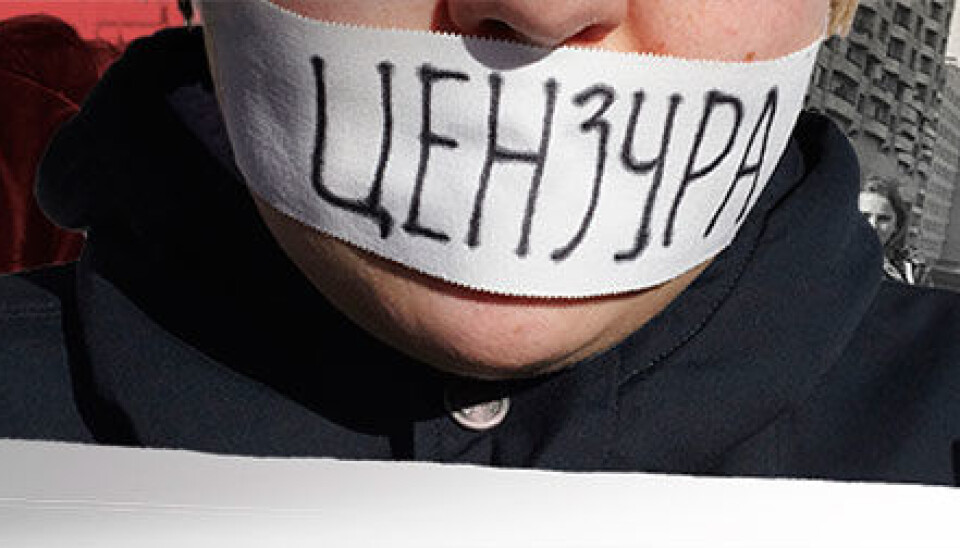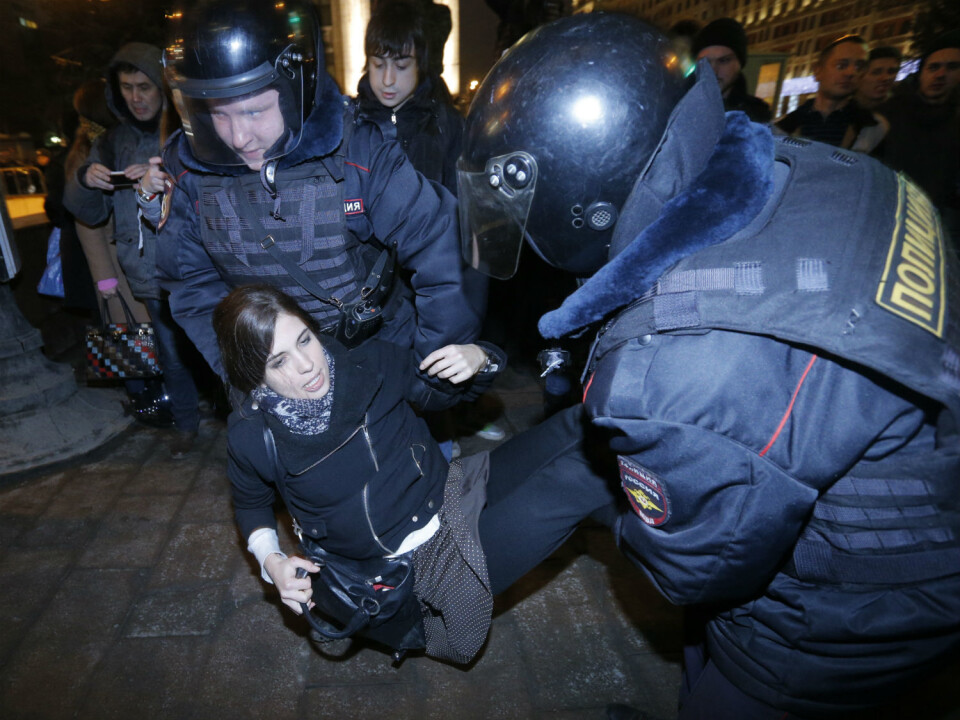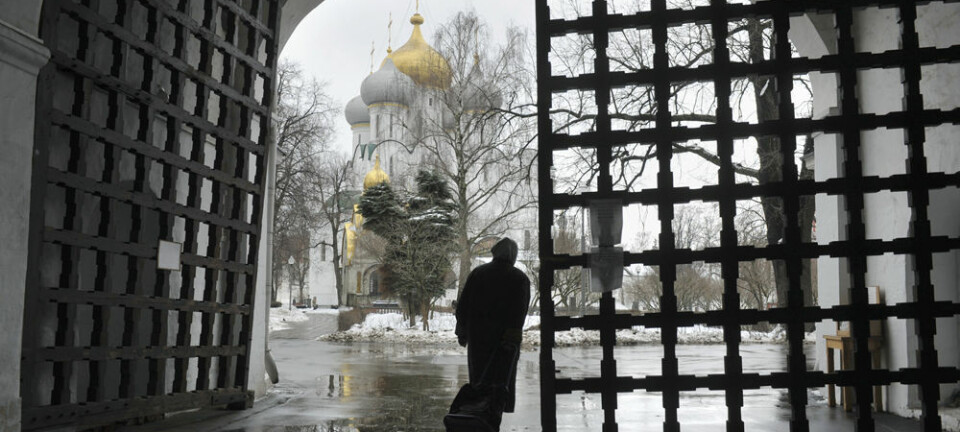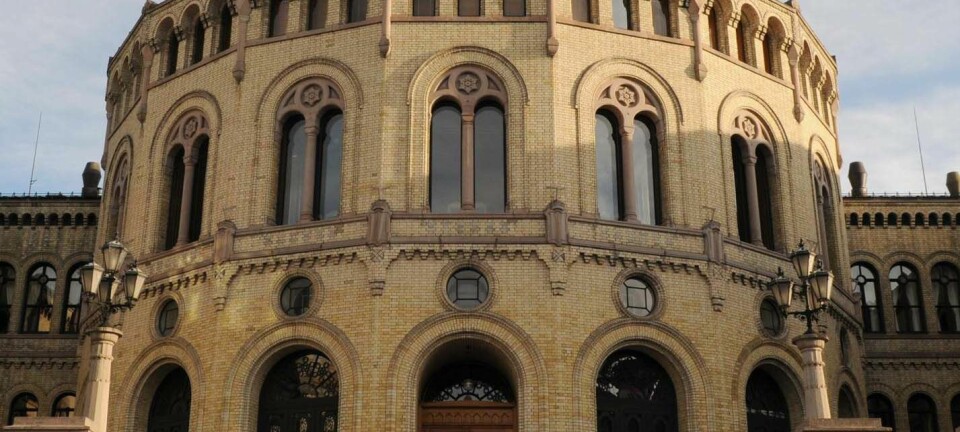An article from University of Oslo

Easy to gag Russian regime critics
The powerful Russian political elite restricts freedom of speech by quasi-legal harassment. A typing error on a form can prevent an opposition politician from running for Office.
Denne artikkelen er over ti år gammel og kan inneholde utdatert informasjon.
Selective law enforcement is a well-known phenomenon in authoritarian regimes.
Håvard Bækken at the University of Oslo, Norway, has investigated this phenomenon in Russian politics from 2007 to 2011. He has studied how laws and regulations are being used selectively against regime critics and opposition politicians in Russia.
“This is a use of power which is by itself neither legal nor illegal, but often somewhere in between. Selective law enforcement is in the political grey-zone, and is therefore hard to grasp,” says Bækken.
“There are numerous cases, and no two are alike. But they do have common traits.”

Its purpose is to control the arena for political expression. Wherever the truncheons cannot reach, manipulated rules and quasi-legal harassment may be used instead.
“And this is widespread,” Bækken states.
He points at the reactions against the protest group Pussy Riot.
“Most people erroneously assume that this is a unique case, while in reality they are just the tip of the iceberg. This method of restricting freedom of speech is found all over Russia, at all levels: federal, regional and local. I have studied around fifty lesser known cases.”
Self-contradictory legal texts

Bækken has studied Russian politics for nine years. His thesis, Selective Law Enforcement in Russian Politics 2007-2011. Legal Action for Extra-Legal Purposes, is based on analyses of legal texts and judicial proceedings, and on extensive fieldwork in Russia.
He has interviewed between 40 and 50 opposition politicians and regime critics in 12 cities in various regions of Russia. His focus is on three legal areas: the anti-extremism law, the copyright law and legislation pertaining to candidates registering to run for elected office.
“The legal texts have been subject to a lot of criticism. They are too bureaucratic and often self-contradictory. In total, it appears to be near impossible to abide by them to the letter. In other words, you can find a law suited for any purpose.”
The researcher believes that everybody could be accused of something.
“My informants told me that a case can be raised against anybody. And it may drag on for years."
The penalties are harsh, and prison sentences are common.
“Someone who is constantly harassed, for example by being subjected to repeated inspections and interrogations, will perceive this as punishment, even though he or she escapes formal sanctions,” Bækken says.
“As one informant put it: ‘This takes years of our lives’.”
Office raids and seizures as a warning
In 2007, a large international political meeting was held in the industrial town of Samara, with demonstrations going on outside.
Prior to the meeting, Novaya Gazeta, a newspaper which is critical of the regime, and Golos, an organization working for free and fair elections, both had their offices raided by special police units.
All their computer equipment was seized.
“Characteristically, it was claimed that they were suspected of using unlicensed software. This is a recurrent topic in these copyright-related cases,” Bækken explains.
In this specific case, the newspaper and Golos won. Microsoft was also involved in the case.It was proven that the evidence had been forged. However, illegal downloading of software happens often.
“In the provinces this has been used as a pretext and as an effective method to stop free speech. It sends a clear message to other critical newspapers and organizations.”
The deterrent effect is central in this harassment.
“The authorities send out a double message: they refer to laws and regulations and thereby deny that their interference is politically motivated. At the same time, the deterrent message which is aimed at other regime critics is very clear,” Bækken claims.
An easy matter to stop critical candidates
An even greater and increasing problem in the provinces is that many candidates are blocked from running for office, according to Bækken. The election committees are controlled by the regional administration, which in turn is fused with the largest political party, more or less.
“Regulations for candidates who want to register to stand for election are so incredibly arcane that it is an easy matter to stop those who are critical of the regime. The right to stand for election is enshrined in the Constitution, but that is of little help when ridiculous details prevent the registration from being approved.”
“A typing error will be sufficient?”
“Absolutely, and there are numerous other examples."
“In Russian, there are two words for ‘mayor’. If a person has used one, he is told that he should have used the other. Thereby, he is accused of having submitted false information,” Bækken says.
Only the most dedicated
Given the circumstances, Bækken finds it incredible that people continue to criticize the regime.
“Politics becomes a form of extremism and being oppositional becomes radicalized. Only the most dedicated choose to continue.”
------------
Read the Norwegian version of this article at forskning.no
































